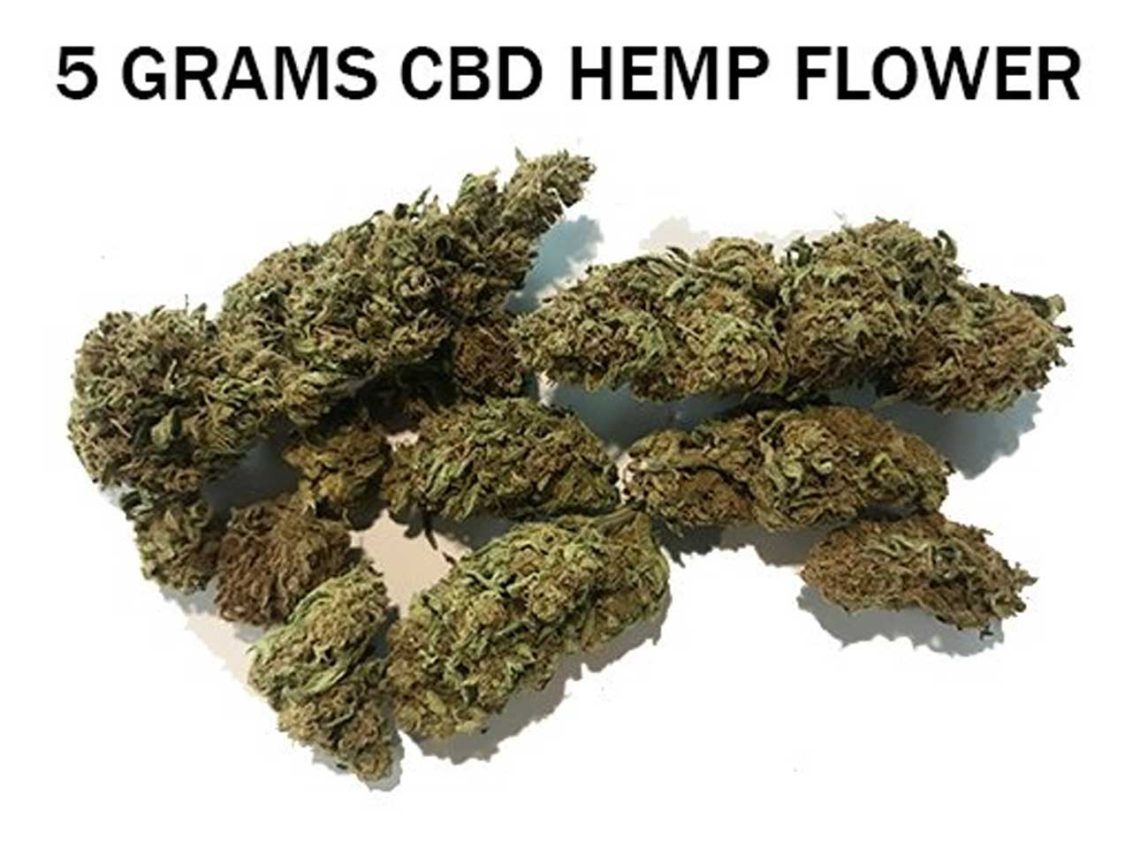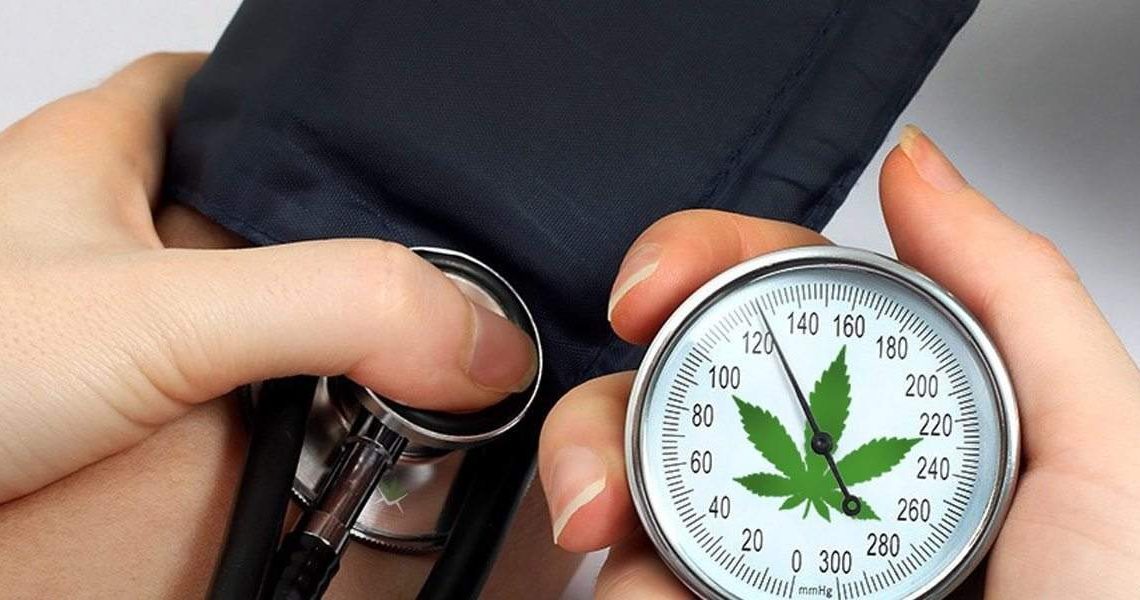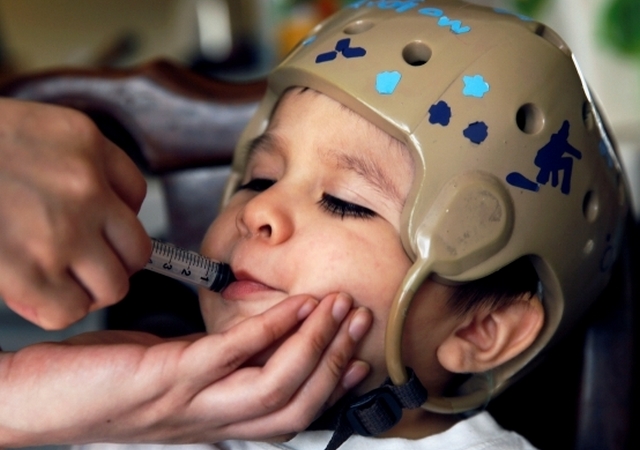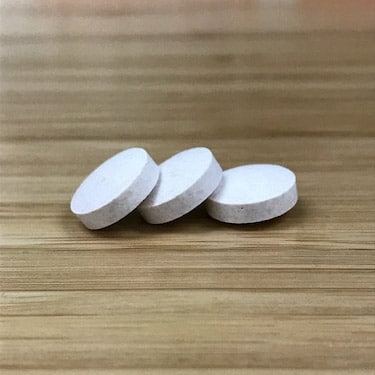Category: CBD
Beginners Guide to CBD Flower
For some, cannabis flower isn’t some tea. Maybe this is on the grounds that it makes one feel excessively neurotic or on edge. We don’t suggest discounting cannabis flower totally. With the end goal to dodge the tornado of nervousness and suspicion, select CBD-rich flower. CBD-rich flower offers the majority of the useful impacts of high-THC flower without the fit of anxiety initiating impacts. CBD-rich flower can do everything from decrease aftereffects to migraines, notwithstanding for clients with high resistances. CBD flower offers customers a lucid experience with unfathomable advantages.
What is CBD Flower?
CBD flower is cannabis bud that enables individuals to unwind without getting high. Truth be told, in the event that you do get a handle on your high from a high THC item, you can even utilize CBD to convey you down to equilibrium. Today’s indica and sativa strains contain as much as 25 percent THC, significantly higher than mother and father’s schwag from the 60s. Tetrahydrocannabinol (THC) is only one of numerous cannabinoids found in the cannabis plant and CBD additionally makes up a sizable part. Some cannabis cultivators have selected to develop for cannabidiol (CBD) for a helpful and non-psychoactive experience. While CBD flower contains low levels of psychoactive THC, the large amounts of CBD manage the impacts of THC.
The Entourage Effect
While many cannabis consumers may choose to opt for CBD-only products like CBD oil, CBD-rich flower can have better effects because of the synergy that occurs between THC and CBD. When smoking or vaping the entire cannabis flower, you get a wide breadth of therapeutic cannabinoids and fragrant terpenes that work together to influence each other’s actions. CBD, for instance, can enhance THC’s pain relieving and epilepsy reducing properties. CBD also encourages THC to stay longer in the system, helpful for people with chronic conditions.

Medicinal Value of High CBD and Low THC Flower
High CBD and low THC flower can alleviate chronic pain, inflammation, seizures, and anxiety. Specifically, CBD flower can help reduce symptoms associated with multiple sclerosis, fibromyalgia, arthritis pain, Dravet’s Syndrome, and some anxiety disorders. When smoked or vaped, CBD flower can deliver immediate effects for acute symptoms. Since consuming CBD flower requires inhalation, it may not be the best consumption method for people with respiratory problems, children or the elderly.
Determining Dose of CBD Flower
Everyone’s ideal dose of CBD flower is different. Every strain will affect everyone differently. Since strains have differing ratios of CBD to THC, consumers can try out many to determine what works best for them. Some people may be more sensitive to THC than others. They need a CBD flower with a high ratio of CBD to THC for less of a high. Start off by consuming low doses of high CBD cannabis flower. A low dose can be one to two inhalations from joint, vaporizer or water pipe. While it isn’t an exact science, the slower you go, the better you can determine your tolerance for THC and CBD.
Buying cannabis flower solely based on a high THC is (and should be) an outdated approach to cannabis consumption. If you’re buying liquor, do you always opt for white lightning given its high alcohol percentage? Cannabis consumers are growing wise to the unique effects of high-CBD flower, which can enhance the overall experience. CBD-rich flower boasts robust relaxing effects that can benefit users that rely on indica strains for its mellowing effects. Strains including Charlotte’s Web, Sour Tsunami, and AC/DC (to name a few) aren’t psychoactive, but offer a potent pain-relieving, anti-inflammatory, and anxiety-reducing effects due to the high amounts of CBD in the flower.
Tinctures Work better
Tinctures still are the best proven way to get CBD without risking the chances of popping on a drug test for THC. Not only are tinctures safer, no smoke, do not smell, and have less risk for testing positive on a drug test, but they often beat the amount of CBD inside hemp flowers by 25-45% on average. Check out the Vetted list of companies for high CBD tinctures that are safe, and proven effective. All provide lab analysis showing the CBD content and how little THC there is. Its the best risk free option if you are looking for high CBD strains.
Latest Reddit CBD Discussions
[wp-rss-aggregator]
Latest Reddit CBD Discussions
[wp-rss-aggregator]
Latest Reddit CBD Discussions
[wp-rss-aggregator]
U.S Senate agriculture panel passes farm bill with hemp legalization
A wide-ranging agricultural bill that includes a provision to legalize hemp made its way through a crucial Senate committee on Wednesday, passing 20-1.
Last week, Senate Majority Leader Mitch McConnell (R-KY) inserted the cannabis provisions—which would remove hemp from the federal definition of marijuana and also free up hemp cultivators to receive federal crop insurance—into the 2018 Farm Bill. The move builds upon the senator’s successful effort to include protections for industrial hemp research programs against federal interference in the 2014 version of the bill.
“I think it’s time we took this step,” McConnell said before the Senate Committee on Agriculture, Nutrition and Forestry on Wednesday. “I think everybody has now figured it out that this is not the other plant,” he added, referring to hemp’s cannabis cousin, marijuana.
“All the people in rural Kentucky who grew up with tobacco are hoping that this will be really something. And as we all know, hemp is very diversified. It can end up in your car dashboard, it can end up in food, it can end up in certain kinds of pharmaceuticals. It’s time to figure it out and see where the market will take us. I think it’s an important new development in American agriculture.”
McConnell also appeared on the Senate floor earlier Wednesday to reaffirm his support for the bill’s hemp provision.
“It’s a landmark piece of legislation that will benefit farmers and communities throughout our country,” McConnell said. “I’m particularly excited that the legislation being considered today includes provisions from the Hemp Farming Act of 2018…which I introduced earlier this year.”
“This will empower farmers in Kentucky and other states to fully realize the potential of industrial hemp.”
Late on Tuesday, Sen. Chuck Grassley (R-IA) filed an amendment to the Farm Bill that would require the Justice Department to “modify the definition of the term ‘hemp’ and make a determination as to whether cannabidiol [CBD] should be a controlled substance” under federal law.
Hemp legalization advocates swiftly responded, urging committee members to oppose the proposed changes, which they feared would gut the intent of McConnell’s legislation.
Kentucky’s Commissioner of Agriculture also tweeted that “I STRONGLY oppose Senator Grassley’s Amendment.”
Kentucky's farmers and processors are making innovative CBD products available to consumers. We recorded millions of dollars in sales revenues last year. The Grassley Amendment must be STOPPED in its tracks. #KyAg365 (2/3)
— Commissioner Quarles (@KYAgCommish) June 13, 2018
Grassley spoke in defense of his proposed amendment, lamenting that he’d “objected on procedural grounds” to the hemp legalization provision and was ignored. He also argued that he’d support the legalization of industrial hemp, but not its derivatives such as CBD. Grassley voiced concerns that the bill would “allow any snake oil salesman” to peddle unregulated CBD products to patients suffering from conditions such as epilepsy and anxiety.
Grassley also claimed that the hemp legalization provision falls “squarely within the Judiciary Committee’s jurisdiction,” which he chairs, as opposed to the Senate Committee On Agriculture.
Notably, however, he didn’t call for a committee vote on his proposed amendment. Instead, he asked that members “work with me to modify this provision after this bill gets out of committee.”
McConnell pushed back against the senator’s remarks. He said that he felt confident in the integrity of the bill and the safeguards it provides after consulting with the Justice Department, the Food and Drug Administration (FDA) and the ranking member of the Senate Committee on the Judiciary. Grassley’s amendment would “undercut essential premise of the bill, namely that help and its derivatives should be a legal agricultural commodity,” McConnell said.
“Hemp should be allowed to flourish again in this county…”
During the Wednesday committee markup, several lawmakers voiced support for legalizing hemp, including Sens. Michael Bennet, (D-CO), Heidi Heitkamp (D-ND) and Amy Klobuchar (D-MN).
Though the bill could still be subject to further amendments when it reaches the Senate floor, it’s doubtful that the hemp provisions would face significant resistance given their sizable bipartisan support. McConnell is joined by Senate Minority Leader Chuck Schumer (D-NY) and Sen. Ron Wyden (D-OR), among others, who also favor of the provision.
McConnell also said he received assurances from U.S. Attorney General Jeff Sessions, a staunch marijuana prohibitionist, that while he wouldn’t embrace the hemp legalization move, he “is not going to oppose us,” the Associated Press reported.
I’d like to thank the Chairman & @SenStabenow for working w/ me to include my #HempFarmingAct in the bill. It builds on the success of the pilot program I championed in the 2014 farm bill by removing federal roadblocks to industrial hemp.
— Leader McConnell (@SenateMajLdr) June 13, 2018
Lawmakers argue that federal laws pertaining to hemp cultivation have done a disservice to farmers and businesses in the United States. While it’s legal to sell hemp products, such as clothing and cosmetics, it remains illegal to cultivate the non-psychoactive cousin of marijuana under federal law.
Wyden took to the Senate floor last week, accompanied by two baskets full of hemp products, to make just that point.
“There can’t be many policies on the books that are more anti-farmer than that one,” he said. “Hemp growers in places like Canada and China must just be laughing all the way to the bank. They’re cashing in, while our farmers have their hands tied by the current hemp restrictions.”
“Our bipartisan legislation will help farmers unlock the full economic potential of industrial hemp, spurring economic growth and creating good-paying red, white, and blue jobs in rural communities across the country. Passing the Hemp Farming Act through the Senate Agriculture Committee marks a huge step toward allowing consumers to buy products made with hemp grown in America.”
I’m thrilled the bipartisan #HempFarmingAct passed the #SenateAg committee today. This marks a huge step toward allowing consumers to buy products made in America with hemp grown in America. #FarmBill18 https://t.co/6I6np0Dei3
— Ron Wyden (@RonWyden) June 13, 2018
My bipartisan #HempFarmingAct w/ @SenateMajLdr, @SenJeffMerkley and @RandPaul will help farmers unlock the full economic potential of industrial hemp, spurring economic growth and creating good-paying red, white, and blue jobs in rural communities across the country.
— Ron Wyden (@RonWyden) June 13, 2018
“It’s a crock,” Schumer, the Democratic leader, said last month, of the nation’s ban on hemp. “It makes no sense that the [Drug Enforcement Administration] is the primary regulator, and that they stop farmers and investors from growing hemp. Why are we buying hemp from other countries, when we have hundreds of acres that could be grown right here in our backyard?”
In a related move, for the third year in a row, the Senate unanimously adopted a resolution last week that acknowledged “the growing economic potential of industrial hemp.” But with the 2018 Farm Bill, this could represent the first year that a hemp legalization provision actually passes in the Senate.
All of this hemp momentum comes as many lawmakers are vying for broader cannabis reform measures, including the newly filed STATES Act, which would exempt marijuana from the Controlled Substances Act for states where the plant has been legalized. It would also provide protections for banks dealing with legal cannabis businesses and legalize industrial hemp.
President Donald Trump told reporters that he “probably will end up supporting that [bill],” last week.
Attempts to include hemp-related amendments to the House version of the Farm Bill were blocked last month. That said, the Senate leader is in a good position to push the legislation forward through a bicameral conference committee, which will eventually craft a final bill to send to the president’s desk.
McConnell said a full Senate vote on the bill would take place before July 4.
See below for a summary of the Farm Bill’s hemp provisions, as prepared by the Agriculture Committee:
Sec. 7125 Supplemental and Alternative Crops; Hemp
x Reauthorizes a research project for supplemental and alternative crops including canola and hemp.
Sec. 7401 Critical Agricultural Materials Act
x Reauthorizes the Critical Agricultural Materials Act, and includes hemp as an eligible product.
Sec. 7415 Legitimacy of Industrial Hemp Research
x Requires the Secretary to conduct a study and report on the economic viability of the domestic production and sale of industrial hemp.
Sec. 10111 Hemp Production
x Amends the Agricultural Marketing Act of 1946 to allow states to regulate hemp growth and production, based on a state or tribal plan that includes information on locations of hemp production, testing for THC concentration, disposal of plants that are out of compliance, and negligence or other violations of the state or tribal plan.
x Requires states and tribes without USDA approved plans to follow federal laws and regulations promulgated by USDA on hemp production.
Sec. 10112 Rule of Construction
x Clarifies that nothing in this title authorizes interference with the interstate commerce of hemp.
Sec. 11101 Definitions
x Defines cover crop termination and defines hemp as used in section 297A of the Agricultural Marketing Act of 1946.
Sec. 11106 Insurance period
x Amends section 508(a)(2) of the Federal Crop Insurance Act by adding hemp.
Sec. 11112 Submission of policies and materials to board.
x Amends section 508(h) of the Federal Crop Insurance Act to allow the Corporation to waive the viability and marketability requirement in the case of a policy or pilot program relating to the production of hemp.
Sec. 11120 Agricultural commodity
x Amends section 518 of the Federal Crop Insurance Act by adding hemp.
Sec. 11121 Reimbursement of research, development, and maintenance costs
x Amends section 522(b) of the Federal Crop Insurance Act to allow the Board and Corporation to waive the viability and marketability requirements in the case of research and development relating to a policy to insure the production of hemp.
Latest Reddit CBD Discussions
[wp-rss-aggregator]
CBD and Blood Pressure
When marijuana was first gaining major publicity for its medical benefits, one of the first public proponents was baseball Hall-of-Famer Kirby Puckett, who used it to treat his glaucoma. From there, it was only a matter of time before medical research proved that CBD reduces blood pressure.
In glaucoma, the pressure of fluid within the eyeball increases, putting pressure on the optic nerve. Eventually, the pressure becomes so great that the optic nerve is pinched off and the patient loses his or her sight.
Cannabinoids and Blood Pressure
Until recently, evidence has been (more or less) inconclusive, with findings going both ways. These studies, however, had been investigating cannabis flower with no control for strain, cannabinoid profile, or route of ingestion.
Different cannabinoids have different effects and attenuate the endocannabinoid system in different directions. It’s well known, for example, that THC and CBD have inverse effects to a degree.
Finally, one recent study, which specifically investigated whether CBD reduces blood pressure in human trials, put a rest to the controversy: “Our data show that a single dose of CBD reduces resting blood pressure and the blood pressure response to stress.”
Cannabis and Cardiovascular Disease
These findings build upon previous research that shows CBD is a vasodilator, which means it makes your arteries and blood vessels wider, allowing for greater blood flow with less pressure. There is a growing body of medical research showing that CBD’s neuroprotective effects are beneficial with cardiovascular diseases, especially in recovery from stroke and heart attack.
This study sheds light on one of the stickier areas within medical cannabis research: its effect on the cardiovascular system. Most investigations looking at long-term cannabis smokers find cardiovascular damage and attribute it to cannabis. Because this study utilized ingested CBD, they were able to separate the effects of smoking and the effects of the cannabinoid.
The negative effects, it turned out, were due more to the smoking than the cannabis itself.
How CBD Reduces Blood Pressure
Now, this is still a long way away from CBD being an effective treatment for cardiovascular diseases like hypertension. Serious conditions have many factors at play—lifestyle, diet, genetic, life circumstances, etc.—and taking some CBD oil isn’t necessarily going to make it all better. There are no magic pills to fix these things, despite what your friendly neighborhood pharmaceutical company would like you to believe.
While it may not be a cure for hypertension, cannabis does provide a natural, safe remedy for people to help manage their stress and blood pressure.
According to the abstract from the, “Journal of Clinical Investigation” Cannabidiol (CBD) is a nonpsychoactive phytocannabinoid used in multiple sclerosis and intractable epilepsies. Preclinical studies show CBD has numerous cardiovascular benefits, including a reduced blood pressure (BP) response to stress. The aim of this study was to investigate if CBD reduces BP in humans.
Nine healthy male volunteers were given 600 mg of CBD or placebo in a randomized, placebo-controlled, double-blind, crossover study. Cardiovascular parameters were monitored using a finometer and laser Doppler. The results varied but participants had a decrease of about 6 mm HG.
“Our data show that a single dose of CBD reduces resting blood pressure and the blood pressure response to stress, particularly cold stress, and especially in the post-test periods. This may reflect the anxiolytic and analgesic effects of CBD, as well as any potential direct cardiovascular effects. … Further research is also required to establish whether CBD has any role in the treatment of cardiovascular disorders such as a hypertension.”
Now Epidemiological studies have shown a positive relationship between long-term stress and the development of cardiovascular disease. Factors like social isolation, low socioeconomic status, depression, stressful family and work life, and anxiety are associated with an increased risk of the development and accelerated progression of existing cardiovascular disease. Current European guidelines on the prevention of cardiovascular disease have emphasized the importance of tackling these factors. Mental stress induces myocardial ischaemia in patients with stable coronary artery disease, and this appears to be mediated by adrenal release of catecholamines.
But what exactly is CBD? Cannabidiol (CBD) is one of the most prevalent chemical compounds in the cannabis plant. Unlike the more famous molecule, tetra-hydrocannabinol (THC), CBD is completely nonpsychoactive. Don’t expect to get “high” off of this organic chemical, however. CBD is all relaxation without intoxication.
While CBD still has an effect on your body, consuming CBD by itself isn’t going to send you on the cerebral adventure associated with THC. For decades, medical professionals and the general public overlooked CBD because psychoactive cannabis took center stage.
Now, the medical potential of CBD has taken cannabis to mainstream audiences. Preclinical trials over the past four decades have found that the cannabinoid shows promise as an anti-hypertensive.
CBD has been studied for these Conditions:
- Cigarette smoking addiction
- Acne
- Diabetes
- Fibromyalgia
- PTSD or Post Traumatic Stress Disorder
- Schizophrenia
- Crohn’s Disease
- Multiple Sclerosis
- Insomnia
One of the few side effects of CBD is tiredness, but for many, it’s what they seek out in the natural herb. Since pharmaceuticals for aiding sleep pose risk for addiction and leave you feeling groggy the next day, it’s best to go the safe route with non-habit forming CBD. When searching for strains to combat insomnia, try staying with Indica and CBD-heavy strains to knock you out when you need it most.
Side Effects:
CBD decreased the activity of T and B cells which may increase the disease progression, tumor growth and metastases, and exacerbate asthma.
CBD can decrease the activity of liver enzymes called cytochrome P450, responsible for metabolizing more than 60% of prescribed drugs. CBD may also cause mild hypotension, dry mouth, lightheadedness, and sedation.
The other thing I want you to be mindful of, again, that it can decrease the metabolizing of medications you are currently taking. If you live in a state where it is legal. Please consult with your healthcare practitioner before using this medicine. Now I know what you must be thinking, “I have got to try this!” Yes and I understand why. In many places CBD is still classified as a “Class 1” drug and is considered illegal. Even in places where it is legal, getting a pure CBD medication can be difficult. Places that had advertised CBD, when it was tested had almost no CBD in the oil, but by trusting the vetted companies you know your CBD is great quality.
Originally found here
THESE STATEMENTS HAVE NOT BEEN EVALUATED BY THE FDA AND ARE NOT INTENDED TO DIAGNOSE, TREAT OR CURE ANY DISEASE. ALWAYS CHECK WITH YOUR PHYSICIAN B EFORE STARTING A NEW DIETARY SUPPLEMENT PROGRAM
Latest Reddit Discussions
[wp-rss-aggregator]
Shaun Hussain, MD, reviews evidence supporting and opposing the use of cannabidiol and medical marijuana in the treatment of pediatric epilepsy
[yotuwp type=”videos” id=”NQKvHdeNJAc” ]
Basic noobie guide for CBD dosages
CBD Oil Dosage – General Advice to Assess How Much CBD to Take
Even with the wave of states legalizing medical marijuana, many physicians are still reluctant to prescribe cannabinoids because they are not sure what dosages to prescribe. After all, most medical schools never cover CBD Cannabidiol in their pharmacology courses. Medical scientists are just now developing dosing schedules for medical marijuana, medicinal hemp and their extracts, including CBD.
CBD-rich hemp oil comes in various concentrations and forms, including liquid hemp oil, hemp oil as a thick paste, oil in capsules, sublingual tincture drops or sprays, salves for topical use, edibles as in candy or gum and CBD vapor from vaporizers similar to e-cigarettes.
Everyone Is Different
What you will find on this page is meant to be a guideline, a starting point of reference. The fact remains that everyone is in a different place and will react differently to their CBD dosage. As serving size or dosage of CBD differs for each person, it is best to start small and gradually increase until you experience the desired result.
CBD Brands Confusing Dosage
CBD oil brands create a lot of confusion for consumers because they all have different standards. Many of them recommend way too much as a “serving” and others recommend too little. Because of this lack of standard during our review of individual CBD products,
It is also recommended that you try increasing dosage every 3-4 weeks by 25mg until symptom relief. And to decrease amount of CBD with any worsening of symptoms.
CBD Oil Dosing
Concentrations vary between preparations, ranging from 1 mg per dose to hundreds of milligrams. This makes it easy for consumers to get the dosages they need in a form they find easy to use.
CBD Dosages
Mayo Clinic suggests CBD dosages on scientific research, publications, traditional use, or expert opinion. Cannabinoid dosages and duration of treatment depend largely on the disease.
How Much CBD Oil Should I Take?
To increase appetite in cancer patients: 2.5 milligrams of THC by mouth with or without 1 mg of CBD for six weeks
To treat chronic pain: 2.5-20 mg CBD by mouth for an average of 25 days.
To treat epilepsy: 200-300 mg of CBD by mouth daily.
To treat movement problems associated with Huntington’s disease: 10 mg per kilogram of CBD by mouth daily for six weeks.
To treat sleep disorders: 40-160 mg CBD by mouth.
To treat multiple sclerosis symptoms: Cannabis plant extracts containing 2.5-120 milligrams of a THC-CBD combination by mouth daily for 2-15 weeks. A mouth spray might contain 2.7 milligrams of THC and 2.5 milligrams of CBD at doses of 2.5-120 milligram for up to eight weeks. Patients typically use eight sprays within any three hours, with a maximum of 48 sprays in any 24-hour period.
To treat schizophrenia: 40-1,280 mg CBD by mouth daily.
To treat glaucoma: a single CBD dose of 20-40 mg under the tongue. Doses greater than 40 mg may actually increase eye pressure.
According to CannLabs, the nation’s top full-service testing lab for cannabis products, there is no established lethal CBD dose. Consumers should read product inserts carefully to ensure they are taking the right amount of CBD, and talk to the prescribing physician about any questions or concerns.






